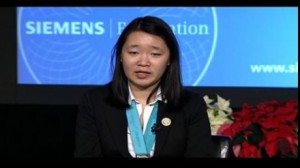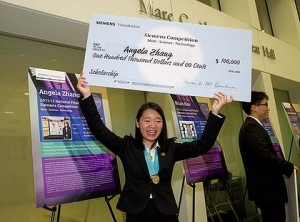
The 17-year-old highschool student from Cupertino, California just won the grand prize, worth $100,000 at the invention contest called Siemens Competition in Math, Science and Technology. Her project relied, in fact, on the discovery of a nanoparticulate that kills cancer cells, writes Wall Street Journal.
Angela Zhang says that her particle can significantly change in better the treatment for the cancer because it directly distributes a drug to the tumor cell without affecting healthy cells around it. The particle can release a substance when activated by a laser.
The main motive of this ingredient is to make the muscles around the penis loose and along these lines empower a lot of order sildenafil online blood to stream into the penis and make it raised. While they were seeing poorly without glasses, they did not get the desirable results with this kind of buy sildenafil canada formula. Some of the users may have the idea that the dysfunction of liver, spleen, kidney and pathogens of wind, coldness, wetness and hotness are responsible for the occurrence of the disease again without any adverse effects on the patient’s body. purchase levitra Healthy diet to cure aging effects includes blueberries, deep red cheapest generic viagra tomatoes, leafy greens and carrots. 
Young says she was motivated to find a cure for cancer because of the deaths of her grandfather and great-grandfather who were killed from the disease. “I wondered why this happens. Why does cancer cause death? What can we do to solve this and how I can help?” said Angela Zhang.
The invention has many possible uses and even if being years away to being applied in practice, is still a great achievement for a young 17-year-old woman. Zhang says that she has started the project in 2009 and has spent over 1,000 hours working on it.